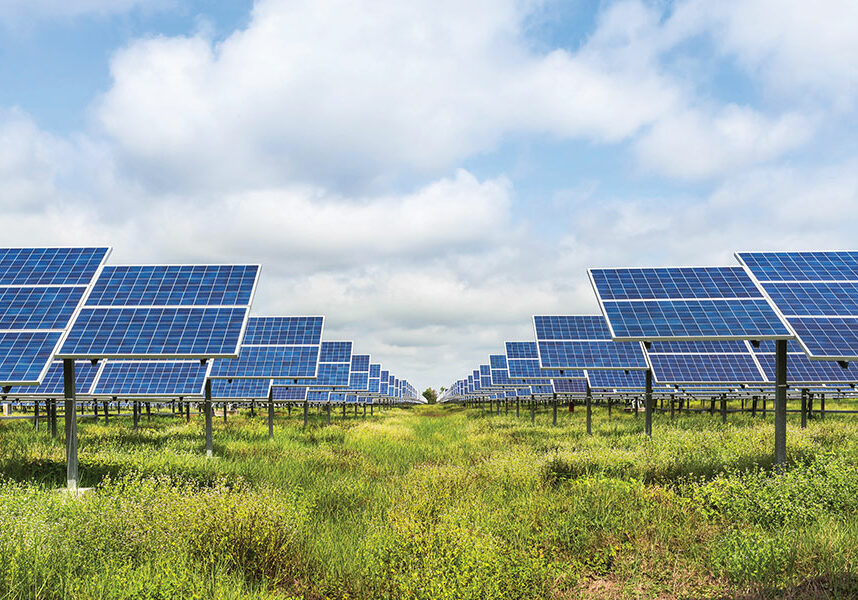
Many of our widespread agricultural base of clients have, over the last several years, been presented opportunities to participate in an energy lease, whether solar or wind. Many of these leases were entered into years ago, most especially wind energy leases, and now are producing very significant income streams for the landlord/family. Having read and reviewed a good number of such leases, my take is that while these typically very long, complex leases are essentially the same, they all raise concerns when reviewed. As a general statement, I have found that the proposed tenant/lessee, especially on a more current basis, is very willing to discuss all areas of concern you have and address them in the lease.
In no particular order of priority, here are a number of concerns or issues we want to address:
Rental rate. Ask yourself, “What is the highest and best rate structure this lessee will go for?” and include a clause that the lease rate will be adjusted to automatically include any subsequent rental rate structures agreed to by the lessee with any neighbor or landlord owner in the proposed target area.
Building roads. Review wordage about building roads — the location and such. If construction of a right of way is involved, make sure you have some say in location and, ultimately, have a clause covering maintenance by the lessee, i.e. weeds etc.
Termination clause. The lease typically has wordage that the lessee can, at any time, terminate the lease early and be absolved of all responsibility, including paying of rent under the lease. We have been successful in asking such wordage to be modified and to include a penalty fee for such early termination.
Bonding. Look for the bonding wordage. At the end of the lease, the lessee is to clean up and/or restore the premises to “as was” prior to the lease. Who will that lessee be? Will they have the financial ability to comply? Presumably, this is not an issue YOU will face, if the lease is programmed for the long term (i.e. 40 years or more), but for your heirs, removal costs and such could be a financially huge burden.
Farm Service Agency (FSA) programs. Is any of your property under the proposed lease enrolled in FSA programs such as the Conservation Reserve Program or the Conservation Stewardship Program? Removing even a small parcel unilaterally from inclusion in the FSA program can result in possible termination of the entire contract by FSA. Review the wordage carefully and include protective wordage that the lessee will be responsible to fully reimburse the landlord (or operator of the land) for all possible FSA early termination fees and penalties, not just applicable to the small parcel(s) being removed.
Lease assignment. Always, there is wordage giving the lessee the right to unilaterally assign the lease “in toto” without your (the landlord’s) consent. This wordage should be negotiated to at least have some protection for you, i.e. “your consent not to be unreasonably withheld, tied to financial review, etc. of the proposed successor assignee.”
Escalation clause. A client was successful in negotiating an escalation clause in a proposed wind energy lease as to future rents, meaning every five to 10 years, lease rental rates are reviewed and adjusted to the current industry standard.
Construction. Watch wordage concerning lease activities in relation to the construction of roads, towers, etc., that such cannot interfere with existing farming activities. You’ll want to specifically cover possible crop damage issues resulting from such construction.
Signing bonus. Recently, at least, a prospective lessee was willing to pay a significant signing bonus.
Attorney fees. The lessee should agree to pay you an advance for your attorney’s review of the lease. The range I have seen is $1,000 to $3,500.
Site location. Pay attention to possible proposed sites, especially for a solar panel farm. For example, is it near your main farm homestead? Or where you look out the kitchen windows and will see it forever? The same goes for ultimate siting of wind turbines, not just the possible obstruction of view, but consider the noise factor.
Possible “sub” lessor issue. Energy leases typically restrict changes to the named landlord or leaser, so if the land to be leased is held in a separate farming entity, such as a Limited Liability Company, any potential changes to that entity (and the different combination of family members and ownership percentages present) need to be addressed in lease negotiations.
Norm Brock has been representing farm families throughout Eastern Washington, Idaho, and northwestern Oregon for more than 40 years. He works out of the firm’s Davenport and Spokane offices and can be reached at (509) 721-0392.












